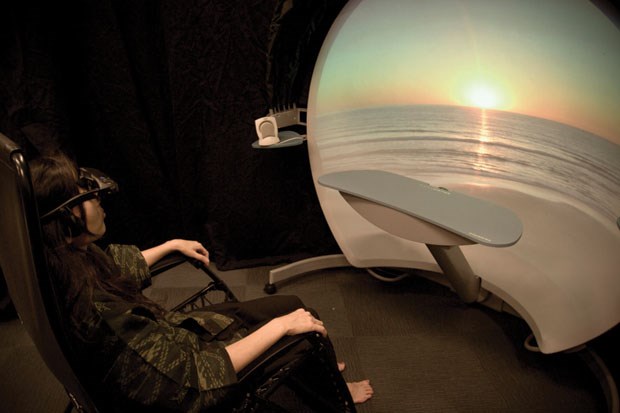Could virtual reality be a breakthrough treatment to help ease the suffering of chronic pain in cancer survivors? That's one of the questions a pair of UBC professors from South Delta is hoping to answer.
Dr. Tarnia Taverner, a Tsawwassen resident, clinical associate professor at UBC and director of clinical operations at Delta Hospital, is working alongside professor Bernie Garrett from Ladner on the research project.
The UBC research team is seeking 100 participants, 16 years or older, with a previous or current diagnosis of cancer, who have been suffering from chronic pain for three months or more to participate in the study.
Taverner said 50 of the participants would be put in a virtual reality environment while the other 50 would be put in a regular gaming environment. The research team would then compare the results.
"We know already from previous research that there are a significant amount of patients who have survived cancer that go on to experience chronic pain," said Taverner.
"That pain can be associated with surgery, followup forms of treatment, chemotherapy, so what we want to do is test the virtual reality to find out if there are any impacts on their ability to manage their own chronic pain from their own homes. We know there is a certain level of distraction when it comes to gaming, but could virtual reality have an even greater impact? That is what we are aiming to find out."
Taverner said the theory behind the study is manipulating the nervous system, which involves pain and pain perception.
"You can manipulate that in reducing your pain. Our hypothesis behind it is we can reduce the pain via active, attentional and distractive mechanisms," she said. "People can become trapped in this really disruptive cycle of pain where from the moment they wake up they have pain and they can't get out of this. We need to find other therapies to allow people to get out of this cycle."
According to Taverner, an earlier case series did find that some people responded well to a more relaxing virtual reality.
"In one virtual reality scenario, the person was in a hot air balloon floating over Vancouver. We think that by engaging people in virtual reality experiences it may change activity in the body's intricate pain modulation," she said.
"Our research is certainly exciting. I think there is a real potential for the use of virtual reality in many ways - not just for chronic pain - but also for people suffering from post-traumatic stress disorder. Could we look at this for people with dementia? Could we place a person in a familiar surrounding, something that they remember, and could that environment provide some form of comfort for them? There is a lot of potential."
All of the equipment and training will be provided to participants, who will conduct the study in their own homes.
For eligibility criteria and more information about the study contact project manager Crystal Sun at 604-822-7679 or email [email protected].



